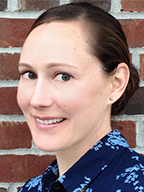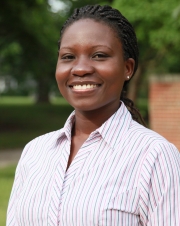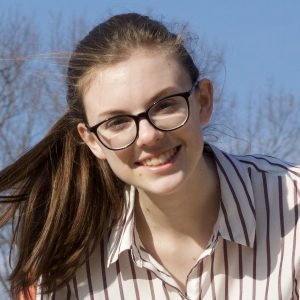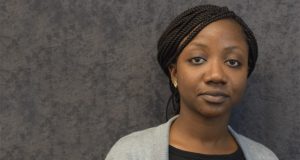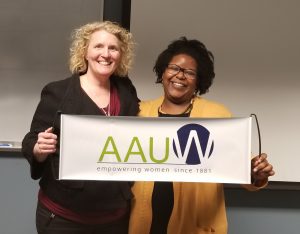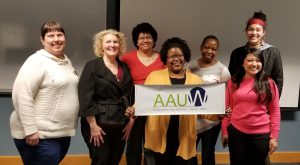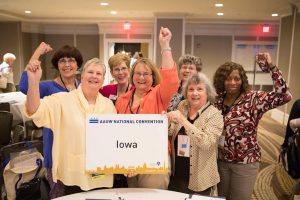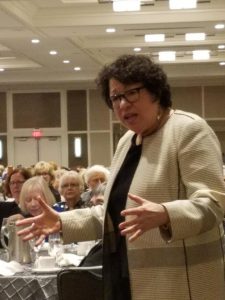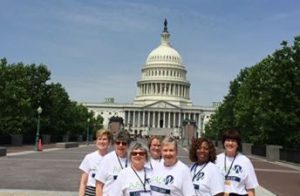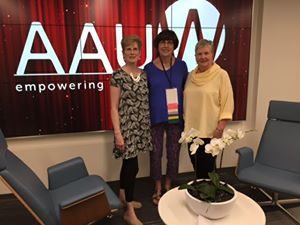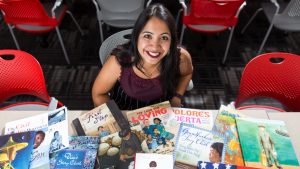
Noreen Naseem Rodriguez, Assistant Professor, ISU College of Human Sciences, School of Education
Growing up in Texas, Noreen Naseem Rodriguez wondered why there weren’t people like her in school textbooks. Rodriguez will explore the topic of cultural diversity in children’s literature at AAUW Ames meeting on Monday, November 26, 7:00 pm at the Ames Public Library, PEO Room.
“I went through 20 years of schooling and I never learned about the history of Asians in America,” said Rodriguez, who is half-Pakistani and half-Filipina — or what she affectionately calls Pakipina. “Even though it’s my racial background, because I never learned about it in school, I never had access to it.”
Rodriguez aims to change that for other students of color. In 2017, she joined the Iowa State University School of Education as an assistant professor in elementary social studies education.
She said many students find social studies boring because it tends to be disconnected from their own experiences, and often boils down to a memorization of dates and people. Teaching social studies this way misses an opportunity to provide children with a foundation in civic education, she said. Rodriguez instead uses children’s books as a tool to teach the difficult histories of people of color in the United States — and engage students in culturally relevant and sustaining ways.
“I believe social studies education should be inclusive of the many groups and cultures in our democracy,” she said. “It should provide students with access to curriculum that critically addresses our country’s complicated past and present in regard to race, class, gender, immigration, citizenship, language, and religion, and examines the politics of representation and belonging.”
How teachers’ experiences inform teaching social studies
As Rodriguez explored the history of Asian-Americans, she was fascinated to find how much she didn’t know. She learned that the first Filipinos landed in Morro Bay, California, in 1587 — before the Pilgrims landed in Cape Cod. She also learned about laws that prevented Filipino men from marrying white women.
“We talk about school segregation as if it’s a black-white issue, but it was so much more than that,” she said.
Her efforts to enact change were recognized earlier this year when she received the OZY Educator Award from OZY, an international online magazine that focuses on news, arts, culture, politics, business, and sports.
Aside from working directly with students, Rodriguez studies current and future teachers of color — specifically Asian-Americans and Latinos — and how their experiences inform their social studies pedagogy, or method of teaching.
Her dissertation at the University of Texas at Austin examined how Asian-American elementary teachers enact difficult histories such as the Japanese-American internment during World War II. She found that teachers’ approaches to discussing race, citizenship, and injustice varied widely.
“Although each teacher recognized the importance of teaching Asian-American narratives, they displayed a range of discomfort and unease with broader issues of race, citizenship, and injustice,” she said. “This research demonstrates the importance of counter-stories and reconstructive history with children and in teacher education.”
Rodriguez was selected to receive the 2017 Larry Metcalf Exemplary Dissertation Award from the National Council for the Social Studies for that dissertation. She presented her research and received her award in November 2017 at the council’s annual conference in San Francisco, before more than 3,000 of her colleagues.
Bilingual teacher in Texas
Rodriguez brings nine years of experience as an elementary bilingual teacher in Texas to her job at Iowa State. She also taught eight sections of elementary social studies methods courses at the University of Texas at Austin to future bilingual teachers and those seeking English as a Second Language (ESL) certification.
Her research includes participating in the Tejano History Curriculum Project, an effort to create curriculum that centered on the experiences of Tejanos, or Mexican-Americans living in southern Texas, who are largely invisible in state historical narratives.
“I urge my undergraduates to think critically about the ways in which marginalized groups are represented in official curriculum and how to better engage young children in social studies that are culturally relevant and more demonstrative of our pluralistic society,” she said.
Rodriguez joins a team at Iowa State that includes assistant professor Katy Swalwell, who also aims to tell the history of people whose stories don’t often get told. The School of Education also offers a graduate certificate in education for social justice.
Isaac Gottesman, an associate professor who led Rodriguez’ search committee, said he has no doubt that Rodriguez will become a leading scholar in social studies education and an important voice in conversations about elementary teacher education, both at Iowa State and nationally.
“Her extensive classroom teaching experience and expertise in justice-oriented social studies curriculum and in bilingual education will be invaluable to our elementary teacher education program as we continue to strengthen our focus on educational equity,” Gottesman said.
“As a thoughtful scholar engaged in sophisticated and significant work, such as on the experiences of Asian-American and Latinx pre- and in-service teachers, Noreen will also contribute significantly to our graduate programs and the broader research mission of the School of Education.” – post by Lynn Campbell, Iowa State University College of Human Sciences, School of Education.
Key Contacts:
Noreen Naseem Rodriguez, assistant professor, School of Education, Iowa State University, 512-294-3265, nrdz@iastate.edu

